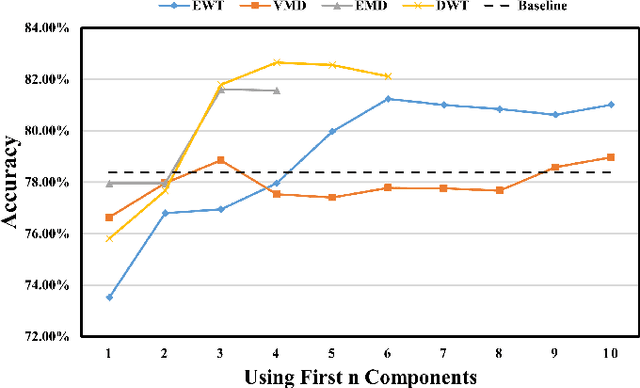A Decomposition-Based Hybrid Ensemble CNN Framework for Improving Cross-Subject EEG Decoding Performance
Paper and Code
Mar 14, 2022



Electroencephalogram (EEG) signals are complex, non-linear, and non-stationary in nature. However, previous studies that applied decomposition to minimize the complexity mainly exploited the hand-engineering features, limiting the information learned in EEG decoding. Therefore, extracting additional primary features from different disassembled components to improve the EEG-based recognition performance remains challenging. On the other hand, attempts have been made to use a single model to learn the hand-engineering features. Less work has been done to improve the generalization ability through ensemble learning. In this work, we propose a novel decomposition-based hybrid ensemble convolutional neural network (CNN) framework to enhance the capability of decoding EEG signals. CNNs, in particular, automatically learn the primary features from raw disassembled components but not handcraft features. The first option is to fuse the obtained score before the Softmax layer and execute back-propagation on the entire ensemble network, whereas the other is to fuse the probability output of the Softmax layer. Moreover, a component-specific batch normalization (CSBN) layer is employed to reduce subject variability. Against the challenging cross-subject driver fatigue-related situation awareness (SA) recognition task, eight models are proposed under the framework, which all showed superior performance than the strong baselines. The performance of different decomposition methods and ensemble modes were further compared. Results indicated that discrete wavelet transform (DWT)-based ensemble CNN achieves the best 82.11% among the proposed models. Our framework can be simply extended to any CNN architecture and applied in any EEG-related sectors, opening the possibility of extracting more preliminary information from complex EEG data.
 Add to Chrome
Add to Chrome Add to Firefox
Add to Firefox Add to Edge
Add to Edge